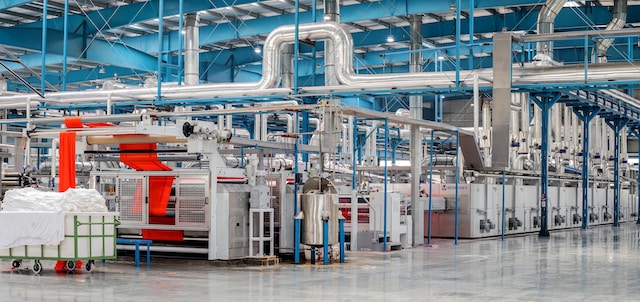Manufacturing and industry leaders are facing an unprecedented challenge in navigating the increasingly complex world of sustainability. As we move forward into a new era of economic, environmental, and social responsibility, it is essential for businesses to stay ahead of the curve when considering sustainable manufacturing strategies that ensure their long-term success.
In this blog post, we’ll discuss how sustainable practices are becoming the key factor in unleashing potential efficiency gains and creating long-standing value across all areas of production within today’s digitally connected industries. With insightful data and case studies to guide us along our journey, you’ll gain a better understanding of why now is the time to focus more resources towards sustainably designing your manufacturing operations – for your business as well as our planet’s wellbeing!
Understanding Sustainability in Manufacturing
It is a holistic approach that considers not only the end product but the materials, processes, and waste management methods used in production. Embracing sustainability means prioritizing resource efficiency, reducing greenhouse gas emissions, and minimizing waste and pollution. It also involves the ethical treatment of workers and investment in local communities.
By adopting sustainable practices, manufacturers can significantly reduce their environmental footprint, improve their brand reputation, enhance customer trust, and achieve considerable cost savings in the long run.
The Impact of Sustainable Manufacturing
On the environmental front, it mitigates climate change by reducing greenhouse gas emissions and minimizing waste and pollution. It also conserves natural resources by promoting efficient use of raw materials and advocating for recycling and reuse.
From an economic perspective, sustainable manufacturing often results in lower operational costs. Efficiency in resource utilization means less waste, which in turn translates to cost savings. Moreover, adopting sustainable practices can open new market opportunities, as an increasing number of consumers prefer environmentally conscious brands.
In terms of social impact, sustainable manufacturing fosters ethical labor practices and promotes investment in local communities. This can enhance worker satisfaction, reduce turnover, and improve a company’s reputation. Thus, sustainable manufacturing doesn’t just make good environmental sense—it’s also a sound business strategy.
Implementing Sustainable Practices in Your Business
Taking the leap towards sustainable practices may initially appear daunting, but the long-term benefits for your business and the planet are well worth the investment. Here are some steps you can take to start your sustainability journey:
- Conduct a Sustainability Audit: The first step in your transition is to fully understand the current state of your operations. Identify areas where you are already implementing sustainable practices and those where improvements can be made.
- Set Clear Goals: Sustainability objectives should be specific, measurable, achievable, relevant, and time-bound (SMART). They should encompass all aspects of your operations, from sourcing and manufacturing to packaging and distribution.
- Engage Employees: Foster a culture of sustainability within your organization. Regular training and education can help to raise awareness among staff about the importance of sustainability. Also, introducing awards for employee service in the field of sustainability can significantly boost engagement and motivation.
- Prioritize Energy Efficiency: Energy consumption is a major aspect of any manufacturing process. By optimizing machinery for energy efficiency and investing in renewable energy sources, you can significantly reduce both your operating costs and your carbon footprint.
- Waste Management: Emphasize reduction, reuse, and recycling in your business. This could involve minimizing production waste, implementing recycling programs, or re-manufacturing products at the end of their life cycle.
- Transparency and Communication: Regularly communicate your sustainability efforts to your stakeholders. This transparency can boost your reputation and foster trust with consumers, investors, and the wider public.
Conclusion
In the evolving landscape of manufacturing, sustainability is no longer merely an option – it’s an imperative. By adopting sustainable manufacturing practices, businesses can significantly reduce their environmental impact, realize substantial cost savings, and foster deeper connections with consumers and communities. The journey toward sustainability does require initial commitment and investment, but the long-term benefits are undeniable.
It’s time for manufacturers to seize this opportunity, embracing sustainable practices not only for their profitability but also for the health of our planet and the prosperity of future generations. The road towards sustainability is a journey, and every step taken is a stride towards a healthier and more prosperous world.







